IN PRAISE OF THE POETS: Laureates all
POET LAUREATE REACHES FOR LYRICISM
Several poets laureate of modern history have released recordings of their work, and current holder of the post, Simon Armitage has now increased the number of their company. None previously, though, can ever have released an album described as providing ´ambient post-rock passages, jazz flourishes and atonal experimentalism´.
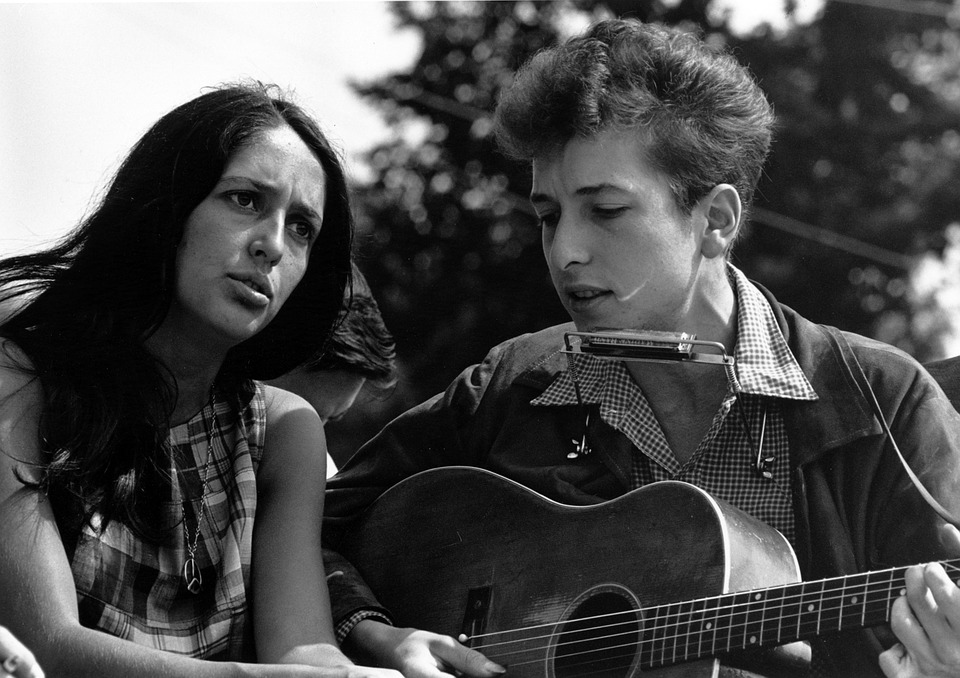
Bob Dylan Coincidentally this news was broken in The Guardian on Friday 7th February, the same day as The Daily Mail carried a question from a reader, and printed for other readers to answer, as to whether any poet has ever had an album enter the best-selling album charts. The kind of answers they eventually receive might depend a lot on whether respondents view the word ´poet´ as a common noun or a proper noun, perhaps. One kind of card holder might immediately speak of Leonard Cohen and Ian Dury, and then add to those two aces to make them three of a kind with a triumphant cry of Bob Dylan, the name of a not-so-obscure winner of the Nobel Prize for Literature..
Those who do not think of those as ´proper´ poets might then struggle to compete. The Encyclopaedia Britannica (on-line) lists twenty one United Kingdom laureates since John Dryden was appointed in 1668 but there have been only seven before Armitage who lived in the era in which audio recordings have been technologically possible.
The title of poet laureate was first granted in England in the 17th century for poetic excellence. The post has become free of specific poetic duties, but its holder remains a salaried member of the British royal household. The office’s title traces its roots to an ancient Greek and Roman tradition of honouring achievement with a crown of laurel, a tree sacred to the god Apollo, who was patron of poets. The tradition of a poet acting in service to a British sovereign is a long one, but the origins of the modern post can be traced to Ben Jonson, who was granted a pension by James I in 1616. After 1668 the laureateship was recognized as an established royal office to be filled automatically when vacant. Until 1999 the position was a lifetime appointment;
Andrew Motion was the first laureate to serve a fixed 10-year term. This list orders the laureates, chronologically, of those who might have had the opportunity to make audio recordings.
Armitage and his band LYR, which includes musician Richard Walters and producer and multi-instrumentalist Patrick Pearson, have signed to “post-classical” label Mercury KX, with their first single, Never Good With Horses, out on Friday, and their debut album Call In The Crash Team to follow in the spring.
´We’re lining up some shows as well,´ Armitage told The Guardian, before reminding them, or perhaps himself, ´Or as they call them in this business, gigs.´
LYR will be appearing on 9th March in Leeds, and 10th March in London.
Armitage told Guardian journalist Alison Flood that the songs on the first album started as ´sort-of poems´, hybrid things between songs and lyrics and poems.´
´I have quite often read them at events, but I think they were reaching out for tunes and musical setting,´ he said. ´This allows me to indulge an aspect of lyricism which is generally not available on the printed page.´
The newspaper article suggested that Never Good With Horses, has the poet’s downbeat recitation joined by awkward keyboards, impassioned vocals and soaring strings, evokes the sadness at the end of a relationship.
´That phrase ‘Never Good With Horses’ just drifted into my head one day and the whole thing just fell out of the title, like a venetian blind,” said Armitage. ´The speaker is a woman describing her disenchantment with a partner who exhibits traditional male characteristics of insensitivity and a lack of empathy´.
The poet described LYR’s music as “electronica, ambient, spoken word by definition – something quite genuinely hybrid”, with all 10 tracks adopting the perspective of a different fictional character.
´They’re monologues or soliloquies from people in personal crises,´ he said. ´They’ve all been written since 2008, which probably has some bearing on that.´
Armitage said he was not the only poet laureate to have released music, citing John Betjeman’s 1974 album Banana Blush – although Betjeman reportedly dismissed it as a “vulgar pop song record, a serious lapse in taste”. Armitage also proposed a new party game, where players suggest the kind of band former laureates might have performed with: ´Tennyson in some sort of grunge band, maybe.´
But even though his voice features on Call In The Crash Team, the poet insisted he has no intention of breaking into song. “My singing days are over,” he said.
My own memories of Simon Armitage are of when he taught me on a creative writing module at The University Of Leeds when I was there as a so called mature student at fifty and he seemed hardly older than the fresh out of schoolers I was studying with. I also recall being for some reason surprised to discover he knew quite a bit about the singer songwriter enclave of Austin, Texas that had emerged in the nineteen seventies. Looking back at that now I don´t know why I was surprised. There were plenty of those musical artists I considered to be also poets in that group, such as Guy Clark and Townes Van Zandt, so why should I have been surprised that another poet, even a future laureate, would think he might enjoy them and even learn from them?
I have bumped into Simon many times over the years since then, mostly at his signings or recitals but also on several occasions when I was hosting and he was guesting at the annual Rochdale Literature And Ideas Festivals. Some of his work has been collated and published with etched illustrations in fine press editions by my friend, Andrew Moorhouse, and because of that connection I was able to ask whether I could read his poem Consider the Poppy as part of an Armistice Day Service in Rochdale commemorating the hundredth anniversary of the outbreak of the first world war. I may well have given the poem its first public reading after he graciously gave me permission. The piece looks from every conceivable angle at the relationship between war and peace and the poppy, in an exploration typical of his work
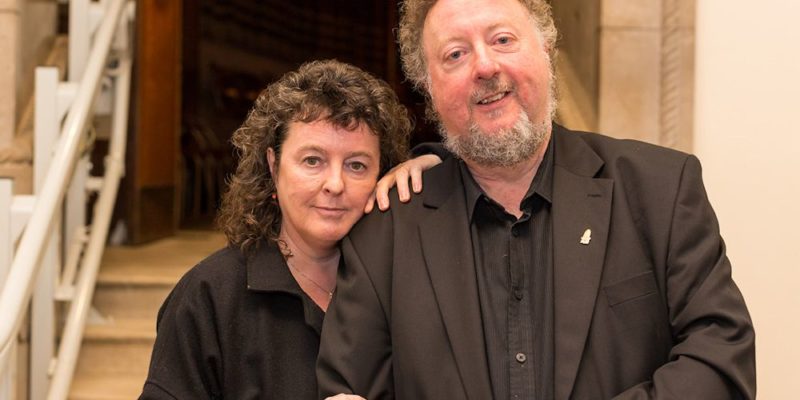
As I began a look back over the output of his predecessors on the list of laureates, I recalled that, in other years when hosting the festival I had also heard readings by Carol Ann Duffy in which she performed with musician John Sansom, so I first looked at her to see what recorded versions of her work she might have created. She released selected poems 1983 to 1993 and narrated the work herself.
More recorded work followed, including Mean Time and New Selected Poems before she became laureate and then released Bees, which included moving eulogies for important players in her life.

It was the laureate she had followed, Sir Andrew Motion, who founded the Poetry Archive, an on line resource of poems and audio recordings of poets reading their own works. During his laureateship I heard him give a reading and lead a remarkable question and answer session to invited guests at Queen Elizabeth Grammar School in Blackburn. However impressed with him I was on that occasion I don´t recall his name in the album charts or any appearances on Top Of The Pops.
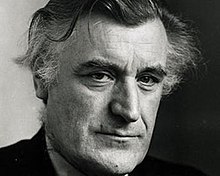
Ted Hughes, in his somewhat gruff Northern dialect, might have recorded some sort of album of his work I supposed and, sure enough there is an extensive selection of the late Laureate’s major poems, read in his inimitable style, available on Amazon. Described as á haunting reader of his own work, he recorded his selection of more than fifty poems from the first twenty years of his literary career. This means that there is a generous helping from two of his most powerful and distinctive works: ‘Wodwo’ (1967) and ‘Crow’ (1970).
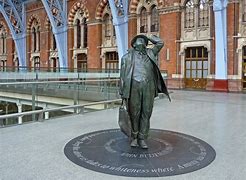
St. Pancras Station
Simon Armitage, of course, alluded in his interview for the Guardian to the recorded output of Sir John Betjeman who was named Poet Laureate of the United Kingdom in 1972, the first Knight Bachelor to be appointed (the only other, Sir William Davenant, was knighted after his appointment).
This role, combined with his popularity as a television performer, ensured that his poetry reached an audience enormous by the standards of the time. Similarly to Tennyson, he appealed to a wide public and managed to voice the thoughts and aspirations of many ordinary people while retaining the respect of his fellow poets. This is partly because of the apparently simple traditional metrical structures and rhymes he uses.
In the early 1970s, he began a recording career of four albums on Charisma Records which included his Banana Blush (1974) and Late Flowering Love (1974), where his poetry reading is set to music with overdubbing by leading musicians of the time. His recording catalogue actually extends to nine albums, four singles and two compilations.
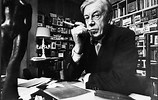
Cecil Day Lewis was born on April 27, 1904, in Ballintubbert, County Leix, Ireland and died May 22, 1972, in Hadley Wood, Hertfordshire, England. He became one of the leading British poets of the 1930s and then turned from poetry of left-wing political statement to an individual lyricism expressed in more traditional forms.
The son of a clergyman, Day-Lewis was educated at the University of Oxford and taught school until 1935. His Transitional Poem (1929) had already attracted attention, and in the 1930s he was closely associated with W.H. Auden (whose style influenced his own) and other poets who sought a left-wing political solution to the ills of the day. Typical of his views at that time is the verse sequence The Magnetic Mountain (1933) and the critical study A Hope for Poetry (1934).
Day-Lewis was Clark lecturer at the University of Cambridge in 1946; his lectures there were published as The Poetic Image (1947). In 1952 he published his verse translation of Virgil’s Aeneid, which was commissioned by the BBC. He also translated Virgil’s Georgics (1940) and Eclogues (1963). He was professor of poetry at Oxford from 1951 to 1956. The Buried Day (1960), his autobiography, discusses his acceptance and later rejection of communism. Collected Poems appeared in 1954. Later volumes of verse include The Room and Other Poems (1965) and The Whispering Roots (1970). The Complete Poems of C. Day-Lewis was published in 1992.
John Masefield was the first laureate of my lifetime, though by the time I began secondary school he was in the last decade of his life. His work was on the education curriculum by then, although poetry wasn´t big with the lads at Heys Road Secondary Modern School for Boys in Prestwich, unless it could be mangled and be chanted aggressively at rival football fans or whispered into a girl´s ear at the youth club when the lights went down. Nevertheless, our English teacher, Mr. Drury, taught me somehow to read poetry and to appreciate it and even to begin writing my own. The lines from Masefield seemed to me to be what poetry should be about, although I did not then understand about matters of liminality. I think now that there was in his work always that ´space between´ that gives the work notions of a restlessness, a yearning, of a quest, and a desire to travel.
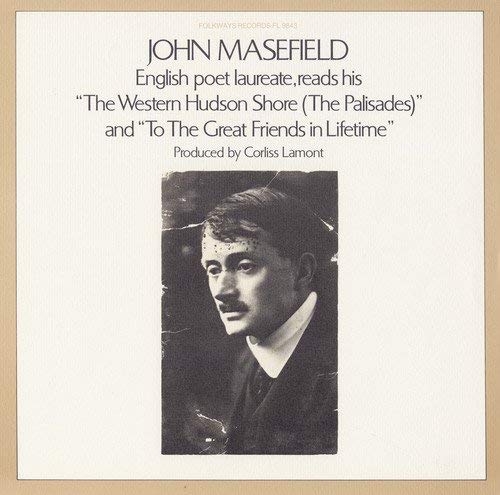
My current search, some half a century later, to find recordings he might have made, has led me, figuratively, towards The Smithsonian Institute in America. It is here that a copy is held of the only known recording of his reading of two pieces called The Western Hudson Shore and To The Great Friends In Lifetime. Thought to have been recorded in the mid nineteen sixties The Western Hudson Shore tells of the British poet´s time spent working in a carpet factory when he was living as a young man in the Yonkers borough of New York. The recordings, like all those mentioned of other laureates, are unadorned by music, and made no impact on a chart that was becoming dominated by The Beatles.
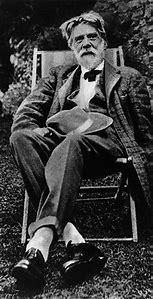
With only Robert Bridges left of our potential recording star laureates, it certainly seems that the new album by Simon Armitage and his group will be setting a precedent if it should make it into the charts.
Poet Laureate Robert Seymour Bridges OM (23 October 1844 – 21 April 1930) was Britain’s poet laureate from 1913 to 1930. A doctor by training, he achieved literary fame only late in life. His poems reflect a deep Christian faith, and he is the author of many well-known hymns. By the miracles of modern technology, though, it is possible to view You Tube videos of Bridges reading items of his work like London Snow.
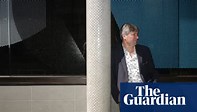
Simon Armitage has a youthful following and is a popular radio presenter and even something of a television personality, and so his album could conceivably become something of a ´hit´ if it finds its way on to the playlist of Radio 2 for instance.
Nevertheless, those who would argue that poetry has been in the charts on previous occasions have already dealt themselves a new hand and are ready to triumphantly lay down a full house that includes Pam Ayres, The Scaffold (including Roger McGough), Rudyard Kipling as delivered by Telly Savalas, lollipop and all.
We wait now to see whether poet laureate Simon Armitage, The Corduroy Kid, can deliver an ace to slay the Tyrannosaurus Rex dinosaur as poetry moves towards the new challenge of taking on the works of the great lyricists.
Having once been a member of a four man panel to take on what seemed a live audience entirely opposed to my viewpoint that poetry can be enhanced by complementary music, I look forward to hearing Simon´s album, Call In The Crash Team, and bringing a review to these pages,.
We would recommend in the meantime that you might like to also seek out an album called Trombone Poetry. Steve Bewick and I played this album, by Paul Taylor, a number of times a few years ago on our all across the arts programme on Crescent Radio and it is particularly notable for its homage to German-American poet and agitator Charles Bukowski.
Paul Simon said that, in these days of miracle and wonder ´every generation throws a hero up the pop chart´ and Armitage, poet laureate of this realm, might be about to reach a whole new audience.

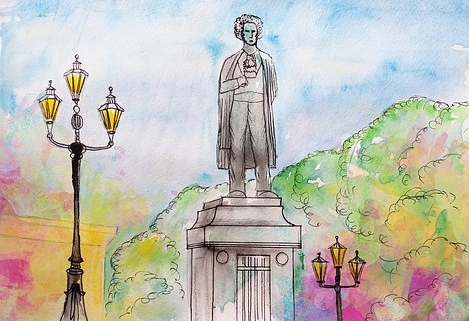


Leave a Reply
Want to join the discussion?Feel free to contribute!